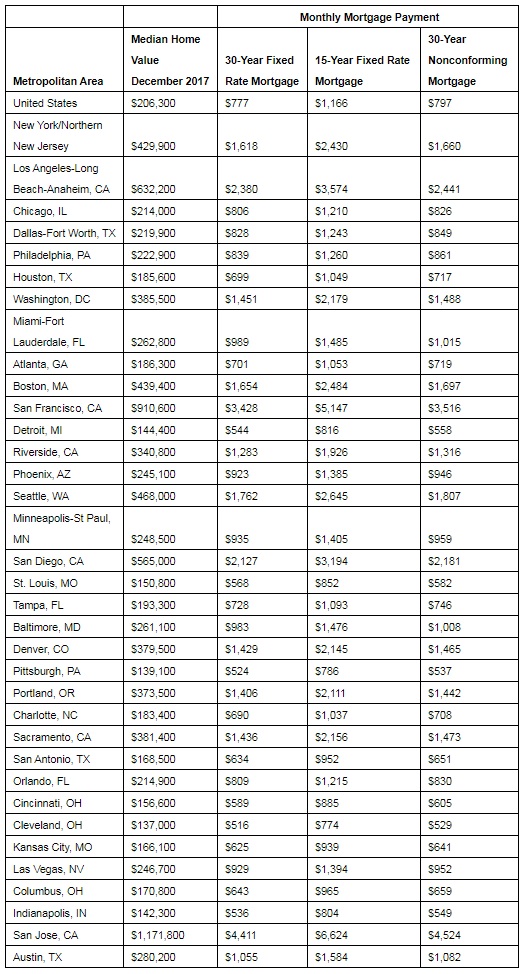Washington, D.C. – Oct. 15, 2018 (PRNewswire) The Federal Housing Finance Agency (FHFA), Freddie Mac (OTCQB:FMCC), and Fannie Mae (OTC Bulletin Board: FNMA) together announce the launch of Mortgage Translations – a centralized clearinghouse of online resources to assist lenders, servicers, housing counselors, and other real estate professionals in serving limited English proficient (LEP) borrowers.

LEP borrowers make up a growing share of today’s mortgage market – a trend that is likely to continue in the coming decades – and lenders and other mortgage market participants are in need of tools to help them serve these consumers. FHFA, Freddie Mac, and Fannie Mae collaborated extensively with industry experts, consumer advocates, and other government agencies in developing the online collection of mortgage documents, educational materials, and a new online Spanish-English glossary produced by the Consumer Financial Protection Bureau in collaboration with FHFA and the Enterprises. The glossary is expected to be particularly helpful in standardizing translations across the mortgage industry.
The first phase of the launch consists of Spanish-language documents. According to the U.S. Census, persons who speak Spanish as their primary language comprise more than 60 percent of the LEP population in the U.S. Resources in four other languages commonly spoken by LEP households – Chinese, Vietnamese, Korean, and Tagalog – will be added in the coming years.
“FHFA is proud to collaborate with Freddie Mac and Fannie Mae and so many others on this important initiative to help address language barriers that impede access to mortgage credit,” said Janell Byrd-Chichester, chief of staff at FHFA. “The Mortgage Translations clearinghouse is one part of a Language Access Multi-Year Plan and includes a number of meaningful resources to help mortgage industry professionals reach a broader range of borrowers.”
“Freddie Mac is pleased to work with FHFA and Fannie Mae on this language access multi-year plan, as it demonstrates our commitment to help make home possible for today’s borrower and the borrower of the future,” said Danny Gardner, senior vice president of single-family affordable lending and access to credit at Freddie Mac. “The materials included on this website will provide lenders, servicers, real estate professionals and housing counselors with tools to better assist, educate and engage LEP borrowers throughout the mortgage process.”
“Fannie Mae is excited to partner with FHFA and Freddie Mac to launch this central source of translated documents,” said Jonathan Lawless, vice president for product development and affordable housing at Fannie Mae. “This online resource will educate, engage and better assist LEP borrowers when shopping for a mortgage.”
About FHFA
The Federal Housing Finance Agency regulates Fannie Mae, Freddie Mac and the 11 Federal Home Loan Banks. These government-sponsored enterprises provide more than $6.2 trillion in funding for the U.S. mortgage markets and financial institutions. Additional information is available at www.FHFA.gov, on Twitter @FHFA, YouTube and LinkedIn.
About Freddie Mac
Freddie Mac makes home possible for millions of families and individuals by providing mortgage capital to lenders. Since our creation by Congress in 1970, we’ve made housing more accessible and affordable for homebuyers and renters in communities nationwide. We are building a better housing finance system for homebuyers, renters, lenders, investors and taxpayers. Learn more at FreddieMac.com, Twitter @FreddieMac and Freddie Mac’s blog FreddieMac.com/blog.
About Fannie Mae
Fannie Mae helps make the 30-year fixed-rate mortgage and affordable rental housing possible for millions of Americans. We partner with lenders to create housing opportunities for families across the country. We are driving positive changes in housing finance to make the home buying process easier, while reducing costs and risk. To learn more, visit fanniemae.com and follow us on twitter.com/FannieMae, YouTube, and LinkedIn.



